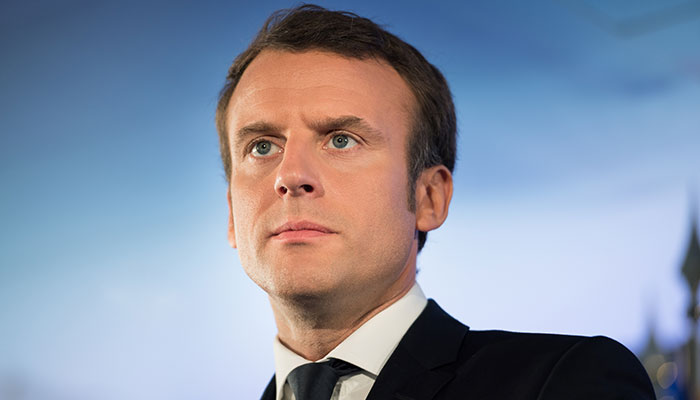web_emmanuelmacron_shutterstock_618031208.jpg

Emmanuel Macron, French president. Shutterstock
The liberal centrist currently has no MPs standing for him in the French parliament – a situation that would leave Macron with little power, despite his office, if it was to continue.
His party La République En Marche! (Republic on the Move) was formed just last April, when Macron stood down from the government of then-president Francois Hollande to forge his own movement, sitting between France’s traditional right and left.
After Macron won the presidential race in May, the party scrambled to field candidates in local seats across France; candidates who, along with an allied party dubbed MoDem, are now projected to win between 415 and 445 of the French National Assembly’s 577 seats.
En Marche! and MoDem won 32.3% of the vote, compared to 21.5% for the Republicans and 13.2% for the far-right National Front. The Socialists won just 9.5%, and look on course to lose 200 seats.
Four seats were already taken in the first round, with one of the candidates running for them securing more than 50% of the vote.
The vast majority will be decided in the second round of voting next Sunday, where the top two candidates from the remaining seats, as well as any candidate who won more than 12.5% of votes from the local electorate, will battle to represent their area in the French legislature.
With Macron seemingly on course to achieve a huge majority and secure the parliamentary machinery needed to deliver his manifesto, Jennifer McKeown, chief European economist at Capital Economics, said this bodes well for the French economy and its relationship with the European Union.
She said the firm was “quite optimistic” about the potential effects of the premier’s planned reforms, which include efforts to open up the labour market, cut tax and administrative burdens for business, reduce the civil service and strengthen the social safety net for the lowest paid.
However, she added that Macron was not in for an “easy ride”, whatever the outcome of the legislative elections.
Turnout in the first round was down on 2012 levels, at just 49%, suggesting Macron still lacks support among much of the French populace.
Labour market reforms have also proven politically explosive in France in the past, with many governments facing strikes and protests for trying to push through similar reforms to those Macron is suggesting.
“[Macron] does not have a blank cheque to implement his manifesto,” noted McKeown. He has promised Brussels he will bring the French deficit down below 3% of GDP this year.
“His projections are based on optimistic assumptions about the effects of his reforms on unemployment,” she said. “If these are not achieved, then he will have to make savings elsewhere, limiting his ability to cut taxes on firms or appease workers with giveaways.”











